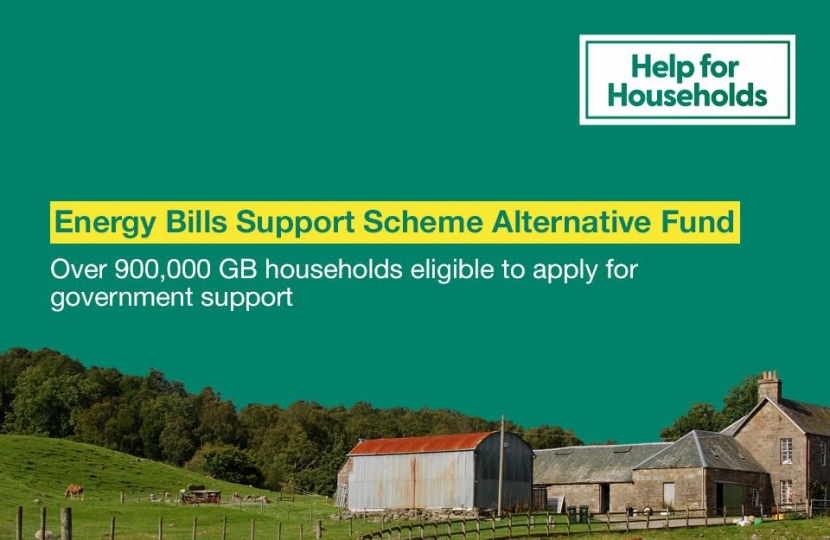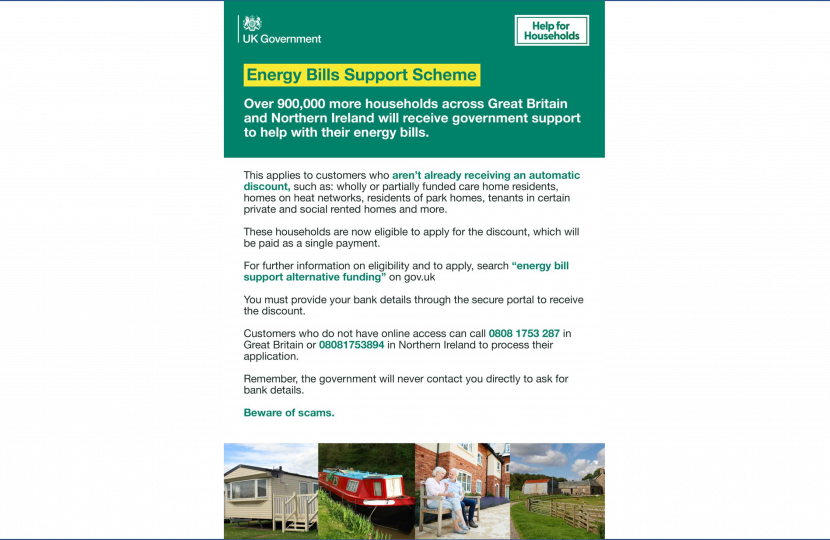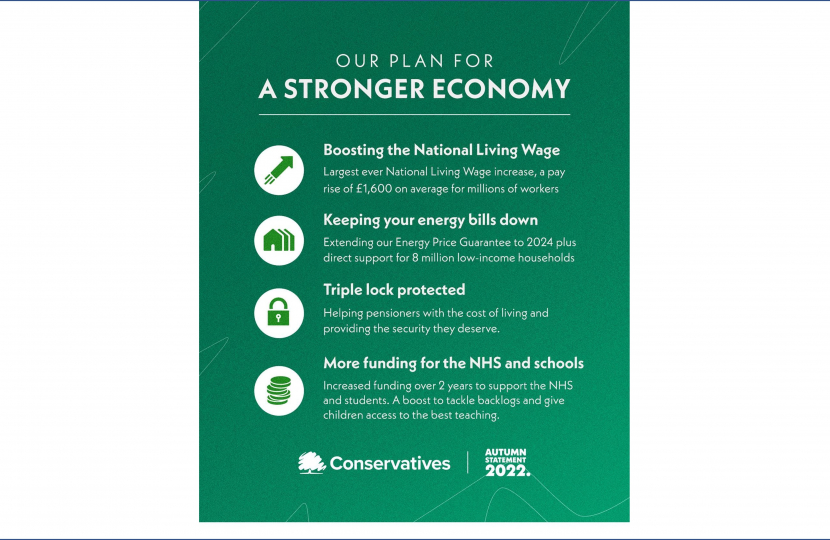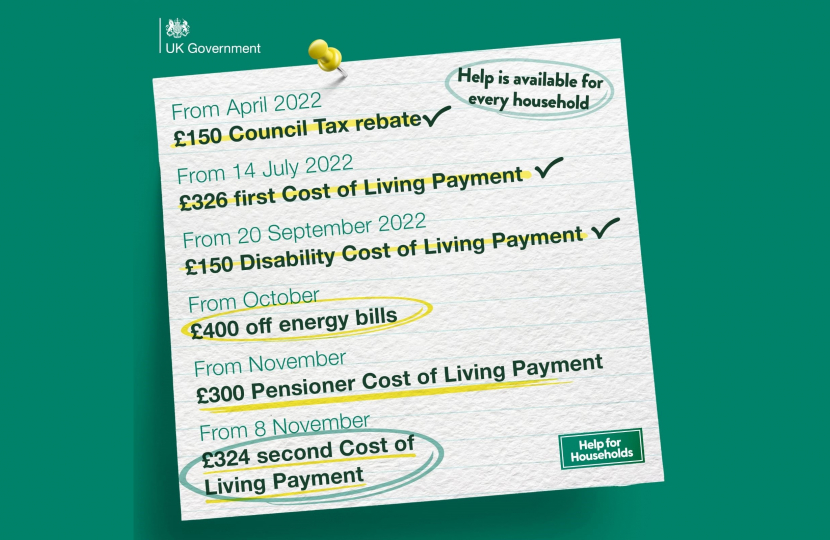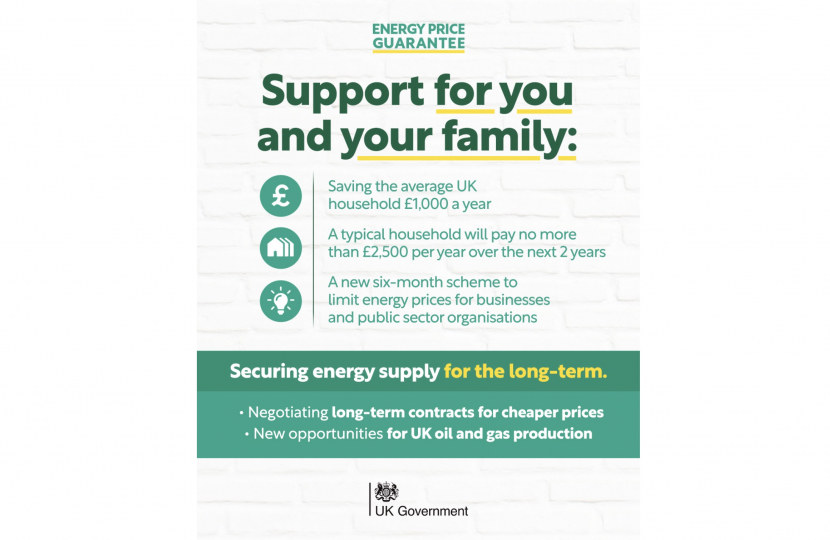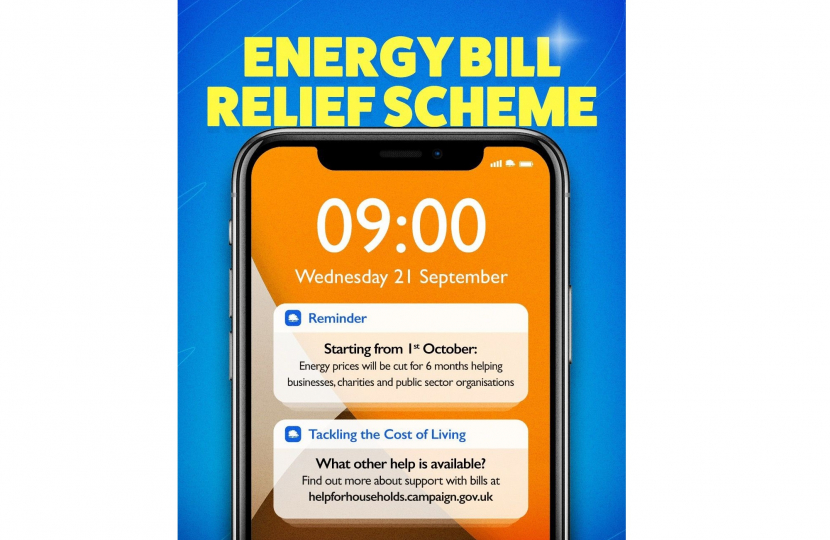This page contains the latest information about what action the Government is taking to support people with the cost of livinf and raising costs of energy. We have seen significant global inflationary cost rises as countries around the world emerge from the pandemic and due to Putin’s illegal war in Ukraine.
In the latest Autumn Statement, the Chancellor has prioritised supporting the most vulnerable and lowest paid, including uprating of benefits in line with inflation, increasing the National Living Wage by the largest increase ever and extending the energy support for households. The increase to the National Living Wage is worth £1,600 to 2 million of the lowest paid workers. Tax rises in the Autumn Statement are focused on the richest households and on the profits of energy companies with the Energy Profits Levy rising from 25% to 35% and a new 45% rate for profits of electricity generators. This will help fund the costs of energy support for households and local businesses.
The Energy Price Guarantee has now been extended capping household energy bills meaning over the winter the average annual household energy bill will be capped at £2,500 and from April 2023 – April 2024 the cap for the average household will be £3,000. In addition, a further £12 billion of targeted support has been announced to help with household energy costs. This will include a one-off payment of £900 to 8 million of the lowest income households who are in receipt of means-tested benefits, £300 to pensioners, an additional £150 on top for those receiving disability benefits and extending the discretionary Household Support Fund for another year.
This is all in addition to the support package already put forwards this year to help both lower and middle-income earners, this has included:
- Doubling the Energy Bill Relief to £400 and households will now not be asked to pay this back.
- 8 million of the most vulnerable households will receive support of at least £1,200 this year, including a new one-off £650 cost of living payment.
- Additional one-off payments of £300 to pensioner households and £150 to individuals receiving disability benefits, this is on top of the support above.
- A further £842 million to extend the Household Support Fund for another year, enabling councils including Stoke-on-Trent City Council to give discretionary support to those who need it most, locally this will see the most vulnerable households in Stoke-on-Trent benefit from £5,373,444 of funding.
Further support has also been announced to support businesses through the launch of the Energy Bill Discount Scheme, which is set to provide £5.5million worth of support to businesses with energy costs up to March 2024. As part of this scheme businesses in sectors with particularly high levels of energy use and trade intensity, like ceramics will receive a higher level of support.
You can find further information on cost of living support for households here:
You can find more information about the support for businesses and other non-domestic customers here:
For information on the Cost of Living Payment, please visit the following link:
Cost of Living Payment - GOV.UK (www.gov.uk)
Information about applying for the Household Support Fund:
If you or anyone you know are struggling then I would recommend you letting them know about the following services:
Citizens Advice have a wide variety of services that you may also find useful, including checking that you are receiving the correct benefits. Their contact details are:
Tel: 0808 278 78 76
Website: http://snscab.org.uk/
Potteries Money Wise, run by the local CAB, also offer a variety of support, including making sure that you are on the best tariffs for your gas and electric, and help moving suppliers. Their contact details are:
Email: [email protected]
Tel: 01782 408625 and leaving a message for a call back within 24 working hours.
Beat the Cold offer help and advice to vulnerable people struggling with energy cost. Their contact details are:
Web: https://www.beatcold.org.uk/
Tel: 01782 914915
